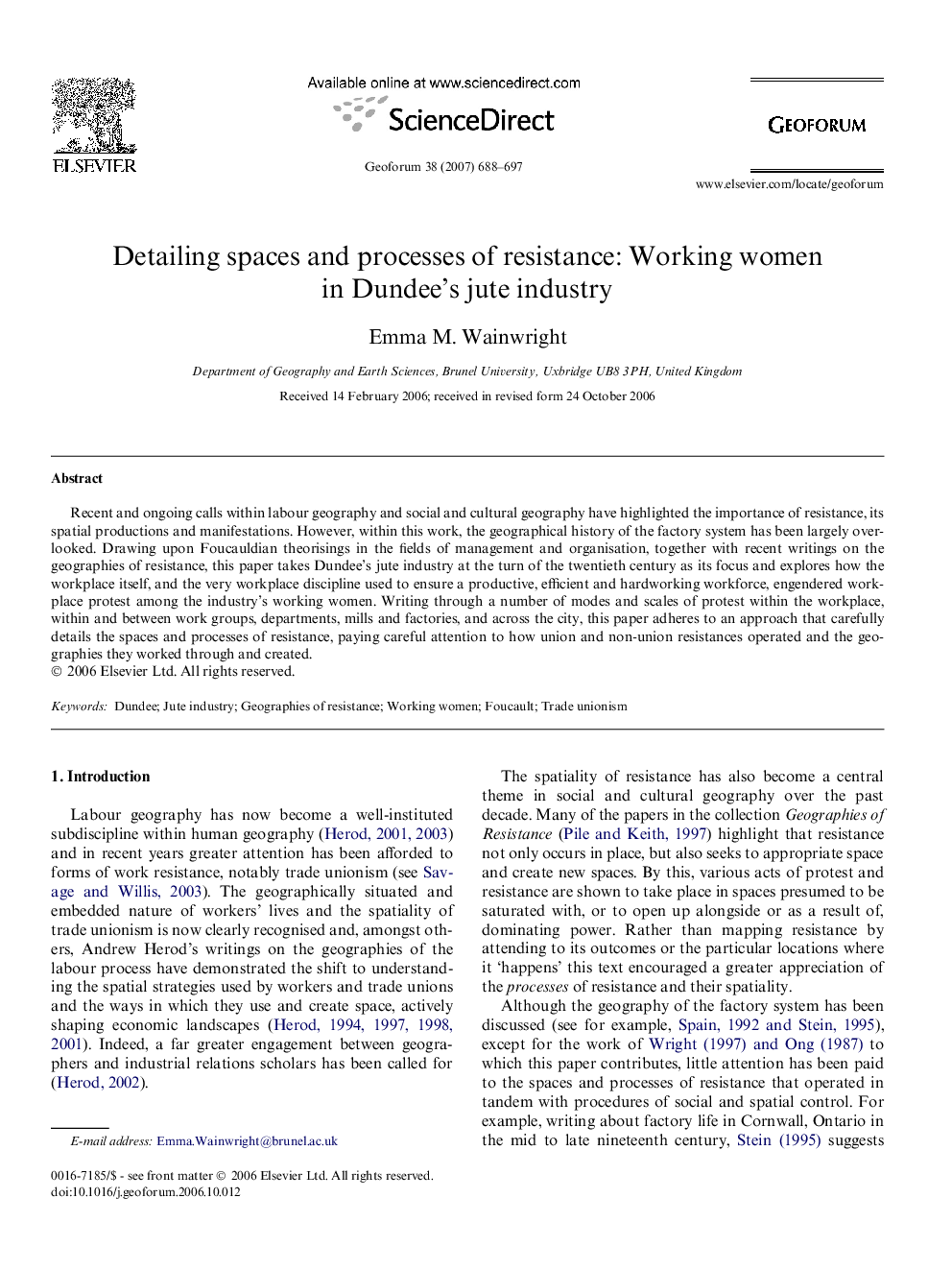| Article ID | Journal | Published Year | Pages | File Type |
|---|---|---|---|---|
| 5075196 | Geoforum | 2007 | 10 Pages |
Abstract
Recent and ongoing calls within labour geography and social and cultural geography have highlighted the importance of resistance, its spatial productions and manifestations. However, within this work, the geographical history of the factory system has been largely overlooked. Drawing upon Foucauldian theorisings in the fields of management and organisation, together with recent writings on the geographies of resistance, this paper takes Dundee's jute industry at the turn of the twentieth century as its focus and explores how the workplace itself, and the very workplace discipline used to ensure a productive, efficient and hardworking workforce, engendered workplace protest among the industry's working women. Writing through a number of modes and scales of protest within the workplace, within and between work groups, departments, mills and factories, and across the city, this paper adheres to an approach that carefully details the spaces and processes of resistance, paying careful attention to how union and non-union resistances operated and the geographies they worked through and created.
Keywords
Related Topics
Social Sciences and Humanities
Economics, Econometrics and Finance
Economics and Econometrics
Authors
Emma M. Wainwright,
